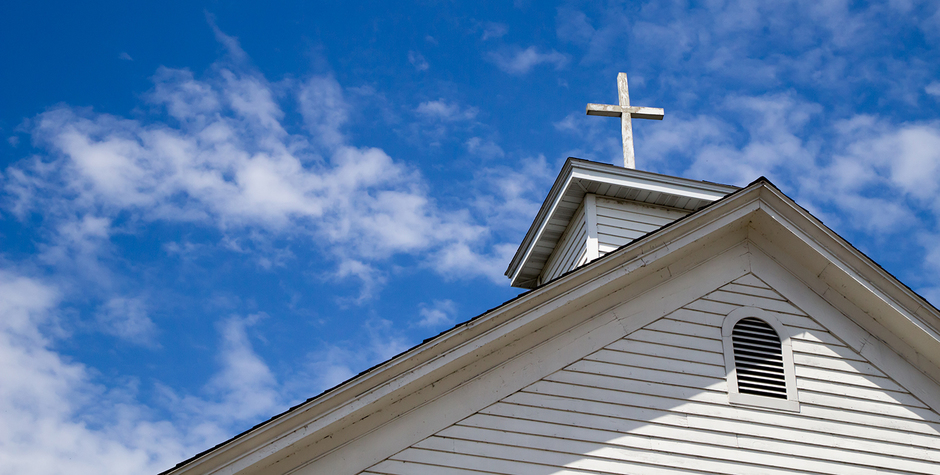The Paycheck Protection Program of the CARES Act Does not Discriminate Against Churches
Based on the ACLJ’s review of the CARES Act, this Bill, which was passed by Congress and signed into law by President Trump, will supply much needed assistance to churches, small businesses, corporations, workers, and families who are adversely impacted by the Coronavirus disease and the resulting pandemic. Assistance to churches and other small businesses is provided by the Paycheck Protection Program (PPP).
Section 1102 of the Act temporarily adds a new product to the U.S. Small Business Administration’s (SBA’s) 7(a) Loan program and Section 1106 of the Act provides for forgiveness of up to the full principal amount of qualifying loans guaranteed under the PPP.
The ACLJ has received numerous inquiries regarding the eligibility of churches to receive aid in a nondiscriminatory manner. Churches are rightly concerned that their unique and constitutionally protected mission will remain unaffected after they apply for, and receive assistance from the SBA loan forgiveness program, which is designed to safeguard employment and cover other expenses incurred by businesses, including 501(c)(3) tax-exempt nonprofit organizations.
We can confirm that PPP assistance to churches will be available in a nondiscriminatory manner that complies with the United States’ Constitution and the Religious Freedom Restoration Act. In other words, churches won’t be forced to give up their autonomy, religious liberty, and firmly held tenets of their faith by taking part in this program.
The Department of Treasury has issued an Interim Final Rule resolving questions from churches seeking to access the Paycheck Protection Program within the meaning of sections 1102 and 1106 of the Coronavirus Aid, Relief and Economic Security Act (CARES Act).
Significantly, the Department of Treasury has verified in writing that churches as eligible recipients of CARES Act loans and as beneficiaries of the Act’s loan forgiveness plan will not be discriminated against nor will they be required to alter their policies. More specifically:
All loans guaranteed by the SBA pursuant to the CARES Act will be made consistent with constitutional, statutory, and regulatory protections for religious liberty, including the First Amendment to the Constitution, the Religious Freedom Restoration Act, 42 U.S.C. 2000bb-1 and bb-3, and SBA regulation at 13 C.F.R. 113.3-1h, which provides: “Nothing in [SBA nondiscrimination regulations] shall apply to a religious corporation, association, educational institution or society with respect to the membership or the employment of individuals of a particular religion to perform work connected with the carrying on by such corporation, association, educational institution or society of its religious activities.”
To be clear, the receipt of a loan through any SBA program constitutes Federal financial assistance and carries with it the application of certain temporary nondiscrimination obligations with respect to the distribution of goods, services or accommodations offered to the public. But equally clear, such distribution rules do not apply to a faith-based organization’s ministry activities within its own faith community. This means that loan recipients must serve the public in a way that complies with SBA’s nondiscrimination rules regarding race, color, religion, sex, handicap, age, or national origin with regards to goods, services, or accommodations offered.
As the government’s FAQ explains (emphases added): “For example, SBA’s regulations will require a faith-based organization that operates a restaurant or thrift store open to the public to serve the public without regard to the protected traits listed above.” But at the same time, theses “regulations do not apply to limit a faith-based organization’s ability to distribute food or clothing exclusively to its own members or co-religionists.”
This FAQ makes clear moreover that the government will be careful not to “impose[] substantial burdens on the religious exercise of faith-based loan recipients.”
Finally, these additional nondiscrimination obligations will terminate at the end of the loan period.
The Interim Final Rule of the Department of Treasury, and its explicit nondiscrimination clause protecting churches right to receive funds, signifies the importance of churches within the framework constituted by the First Amendment to the United States Constitution, the Religious Freedom Restoration Act and the terms provided by SBA regulations. By welcoming the participation of churches in the PPP, the CARES Act also recognizes the importance of the fact that there are an estimated 1 million people on the payroll of U.S. churches.
ACLJ readers and supporters should rest assured that we will continue to monitor the implementation of the CARES ACT to ensure compliance with the law. In addition, we will continue to work to safeguard the ability of churches’ to fully participate in the Paycheck Protection Program without facing illegal and unconstitutional scrutiny that hampers their mission.

